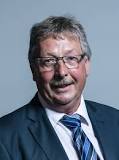Douglas Haig – 1965 Article on Recent Transport Ministers
The article written by Douglas Haig, a journalist for the Birmingham Post, on 31 December 1965 following the appointment of Barbara Castle as the Transport Minister.
Of the last three Transport Ministers to precede Mrs. Barbara Castle, men who tackled the problems of railways deficits, the introduction of motorways and systems of traffic engineering and control to reduce congestion and improve safety, Mr. Ernest Marples stands hand and shoulders above the others.
He is now recognised, even by many of those who had the “Marples Must Go” stickers in the rear windows of their cars, to be the publicist, technocrat type of Transport Minister the country now needs.
…….
During his reign, despite heavy and faster capital renewal, the railways were disintegrating commercially. So, Mr. Marples, not satisfied with the report of an expert planning board to reorganise the railways under Lord (then Sir Ivan) Stedeford, brought in Dr. Richard Beeching. He also announced a complete financial reorganisation of the railways, and the break-up of the British Transport Commission into five separate boards, each to try to be self suppporting.
His objective was to make them all commercially viable. This began to be achieved by reductions in the deficits of the railways under Dr. Beeching until (as he observes with regret) an increase in deficit of £20m under Mr. Tom Fraser. The object achieved – a much more business-like and economic running of all the nationalised transport undertakings, Mr. Marples used as his motto “The Boss Ought Know”. His method was to gauge the size of the problem, study the facts in depth, but above all act with deeds, not words.
…….
His rule – you must keep up the momentum in a Ministry, or it will sag. Mr. Tom Fraser, regarded as a sound, solid, but unimaginative Minister, let it sag. His main contributions have been the reversal of many Marples-Beeching railway closures, subsidising London Transport, the 70mph speed limit and the 30mph danger lights on motorways in difficult conditions.
……
Mr. Fraser failed to make public a Labour transport road-rail co-ordination programme. In this, to Labour MP’s chagrin, he achieved nothing. Nor do transport experts believe it is possible properly to co-ordinate the two, without damage to industry and transport costs. They forecast that Mrs. Castle will be no more successful in this sector of Labour policy.


